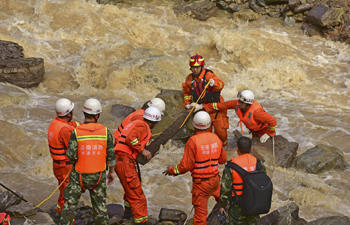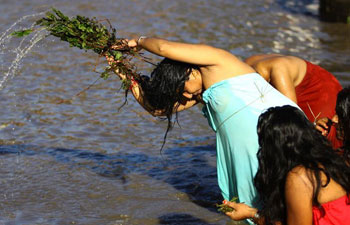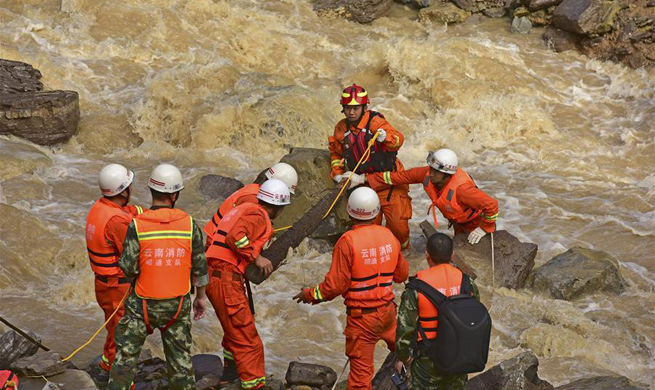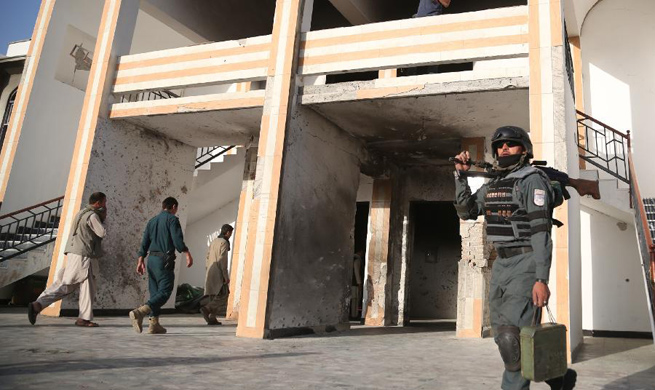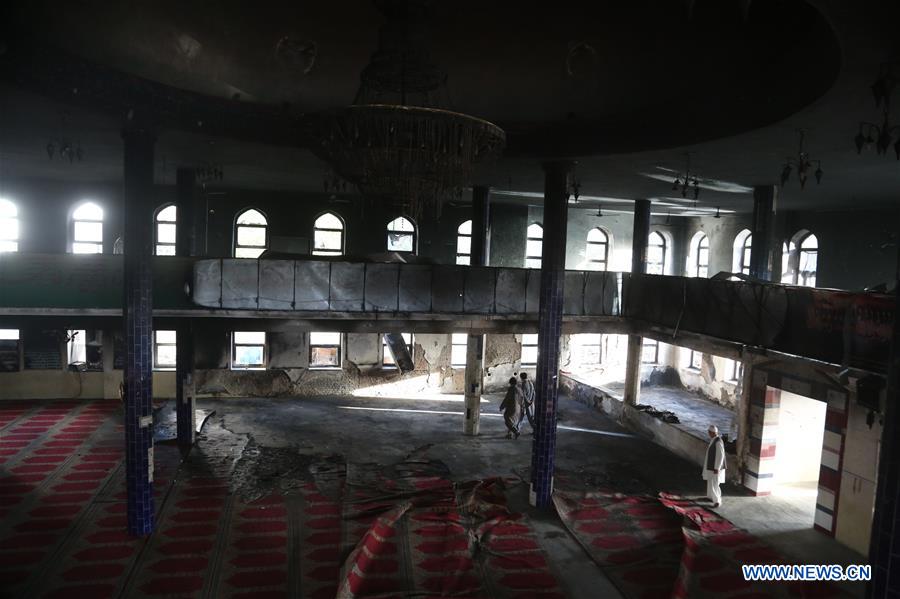
Photo taken on Aug. 26, 2017 shows the mosque which was attacked by militants in Kabul, capital of Afghanistan, Aug. 26, 2017. The death toll of the mosque attack on Friday has risen to 40 while 90 people were wounded, the Afghan Independent Human Rights Commission said on Saturday. (Xinhua/Rahmat Alizadah)
KABUL, Aug. 26 (Xinhua) -- At least 40 people were killed and 90 others wounded in a terror attack against a Shiite mosque in Afghanistan's capital of Kabul on Friday, raising fear among Afghans, particularly the Shiite Muslim in the country.
The attack came when two suicide bombers stormed Imam-ul-Zaman mosque during Friday prayers at around midday.
"The Afghan Independent Human Rights Commission (AIHRC) strongly condemns the attack on Imam-ul-Zaman Mosque in Kabul city, which resulted in killing of 40 and wounding of 90 innocent civilians and expresses serious concern about increasing of attacks on civilians and sacred religious places," the AIHRC statement read.
Friday's attack was the sixth attack against Shiite mosques this year, according to the UN Assistance Mission in Afghanistan (UNAMA).
"This latest in a series of attacks targeting members of the Shi'a (Shiite) community at worship has no possible justification," Toby Lanzer, UN Secretary-General's Deputy Special Representative for Afghanistan and acting head of UNAMA was quoted in a statement issued Saturday.
"Such attacks directed at the congregations and places of worship are serious violations of international law that may amount to war crimes."
Several women and children were among the killed and injured. At least one assailant detonated his suicide jacket severely damaging the two-storey building.
"International humanitarian law prohibits deliberate attacks against civilians and civilian property, including places of worship, and also places a specific obligation on parties to enable religious personnel to carry out their work," the UNAMA statement added.
Four of the attacks occurred in western Herat province and the other two in Kabul and the Islamic State (IS) has claimed responsibility for all of the attacks, including Friday deadly incident.
The latest attack came as the Afghan public were in the view that the frequent attacks on Shiite would not lead to sectarian strife between Sunni and Shiite communities.
"It is a source of concern for all Afghans; the latest attack has raised fears among Afghan Shiite and the Sunni sectarian as well. However, it is clear that people of Afghanistan are united and the enemies of Islam are failing to switch sectarian stifle among communities here," a Shiite Muslim, who declined to be named told Xinhua earlier Saturday.
In an unusual practice, people dug graves for Friday's victims in the mosque's yard in Qala-e-Najarha locality of Kabul, dominated mostly by Sunni Muslims, to pay respect for the victims and show their anger over frequent assaults against worshippers.
"It is an assault against all Afghan Muslims, but the perpetrators must be brought to the justice," religious scholar Nazim told local media Tolo News.
The government must take measures to stop the killings of worshippers and attacking of holy places at an earliest time, Nazim said.
The Afghan human rights commission statement noted that "attack on sacred places and mosques are an atrocious, inhumane and illegal action contrary to all orders of sacred religion of Islam, international humanitarian laws and our national laws."
It also called on government and security forces to make all efforts for security of sacred places and safety of the citizens, the statement added.
The Afghan civilians continue to bear the brunt of armed conflicts as more than 1,660 civilians were killed and over 3,580 others injured in conflict-related incidents in the first half of the year, according to UNAMA.
More than 26,500 civilians have died and about 49,000 have been injured as a result of armed conflicts in Afghanistan since January 2009 when the mission began tracking civilian casualties, the mission figures showed.







